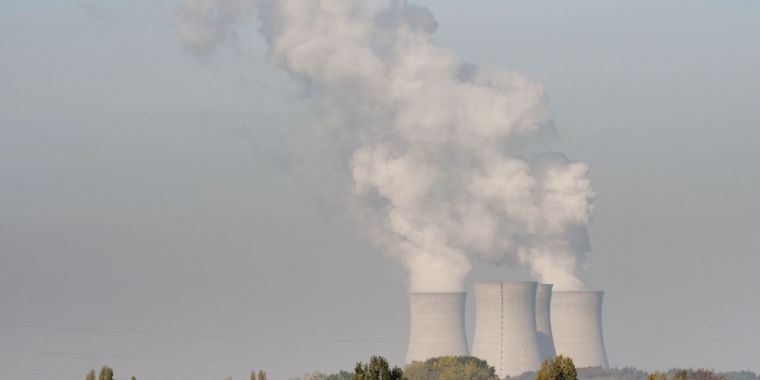
The mall is located about 60 miles outside Stockholm in the town of Eskilstuna. There are 14 stores, a restaurant (see below), an exhibition area and an educational program so that Swedes can learn how to recycle even more.

The Western Australian town of Kwinana installed nets on 750mm and 450mm-diameter concrete drainage pipe outlets. It was instant success.

For the first time, researchers have created an iron molecule that can function both as a photocatalyst to produce fuel and in solar cells to produce electricity. The iron molecule could replace the rare metals used today.

French President Emmanuel Macron talked about the country's future plans for nuclear power, saying France would retire 14 nuclear reactors but on a slower timeline than had been suggested previously.

Bristol has certainly pioneered a name for itself as a center for all things green. Now Bristol's city council has declared a climate emergency and promised to target complete carbon neutrality for the city by 2030.

A new report suggests that net zero emissions is achievable by mid-century, even in the hardest-to-reform sectors of the economy such as shipping, freight transport, cement manufacturing, plastics and aviation.

Korea's largest dog slaughterhouse in the province of Taepyeong-dong has been shut down by authorities. Made up of six separate complexes, the city council will demolish five and turn the space into a public park.

It'll only have nine seats. But the low cost carrier expects larger electric planes in service by 2027.

BioCellection startup decided to tackle the problem on the molecular level. Instead of shredding plastic trash, it chemically converts it into raw materials that can be used to make new products.

Spain proposes new laws banning petrol vehicles, fracking, scraps fossil fuel subsidies and sets 2050 goal for 100% renewable power.

A mushroom has been turned into a renewable energy generator using 3D printed materials and bacteria. The initial results are promising for further development as a source of renewable energy.

US researchers have developed an improved system to use renewable electricity to reduce carbon dioxide into carbon monoxide.

Scientists in Sweden have developed a specialized fluid, called a solar thermal fuel, that can store energy from the sun for well over a decade.

Finland has set a goal to make the country a global circular economy leader by 2025, by adopting the world’s first road map to a circular economy in 2016.

In the past five years, the amount of renewable capacity has tripled while fossil fuels’ has fallen by one-third, as power stations reached the end of their life or became uneconomic.